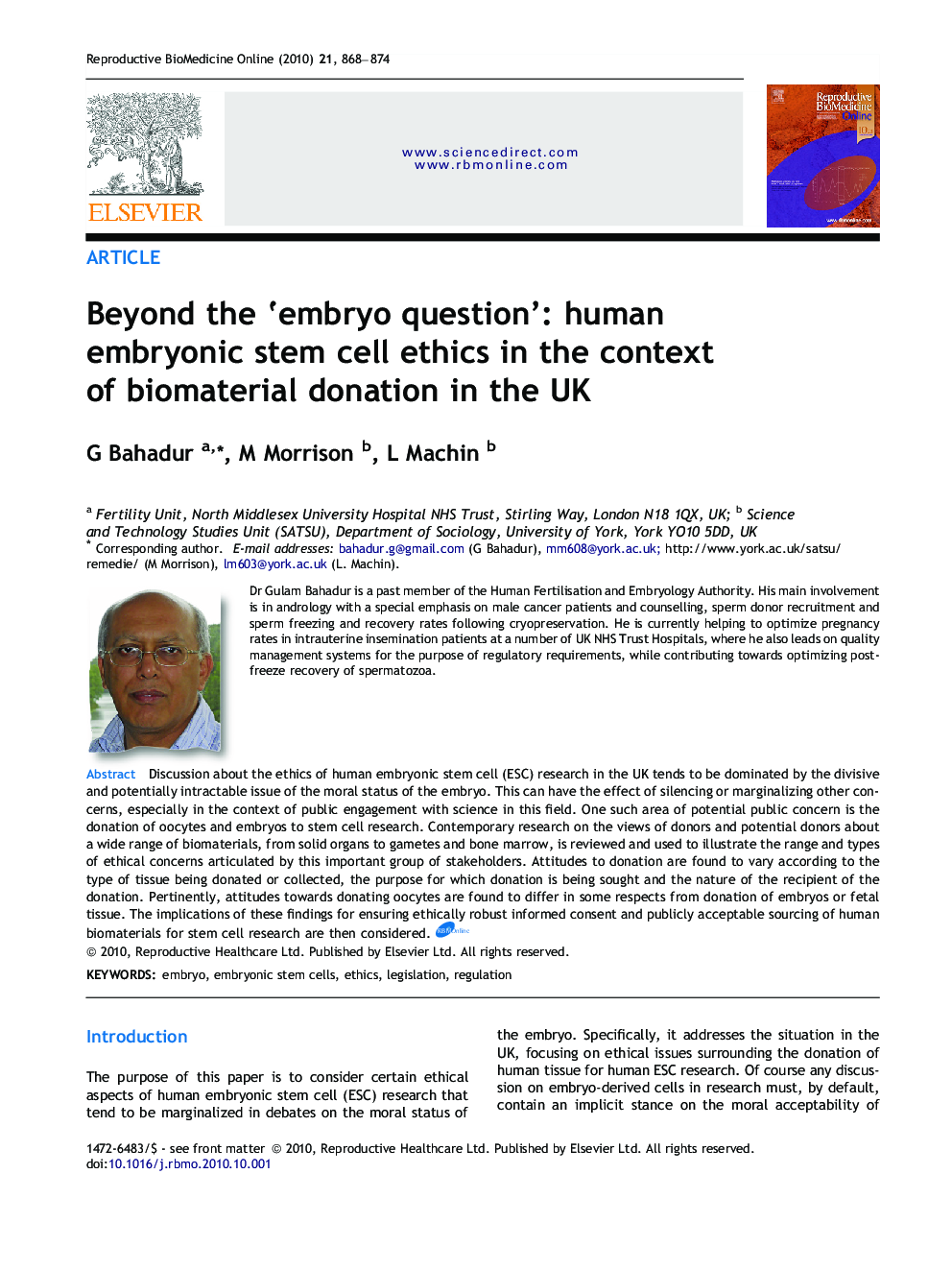| Article ID | Journal | Published Year | Pages | File Type |
|---|---|---|---|---|
| 3971498 | Reproductive BioMedicine Online | 2010 | 7 Pages |
Discussion about the ethics of human embryonic stem cell (ESC) research in the UK tends to be dominated by the divisive and potentially intractable issue of the moral status of the embryo. This can have the effect of silencing or marginalizing other concerns, especially in the context of public engagement with science in this field. One such area of potential public concern is the donation of oocytes and embryos to stem cell research. Contemporary research on the views of donors and potential donors about a wide range of biomaterials, from solid organs to gametes and bone marrow, is reviewed and used to illustrate the range and types of ethical concerns articulated by this important group of stakeholders. Attitudes to donation are found to vary according to the type of tissue being donated or collected, the purpose for which donation is being sought and the nature of the recipient of the donation. Pertinently, attitudes towards donating oocytes are found to differ in some respects from donation of embryos or fetal tissue. The implications of these findings for ensuring ethically robust informed consent and publicly acceptable sourcing of human biomaterials for stem cell research are then considered.Discussions about the ethics of human embryonic stem cell research tend to be dominated by the divisive and potentially intractable issue of the moral status of the embryo. This can have the effect of silencing or marginalizing other concerns, especially in the context of public engagement with science in this field. In this paper, we develop an alternative perspective by focusing on the donation of oocytes and embryos to stem cell research and placing this in the context of the wide range of tissues and bodily components that are donated to medical research and therapy in the UK. Contemporary social research on the views of donors and potential donors about a wide range of biomaterials, from solid organs to gametes and bone marrow, is reviewed and used to illustrate the range and types of ethical concerns articulated by this important group of stakeholders. Attitudes to donation are found to vary according to the type of tissue being donated or collected, the purpose for which donation is being sought and the nature of the recipient of the donation. The potential of the insights provided by this perspective for the donation of biomaterial to human embryonic stem cell research are then considered.
